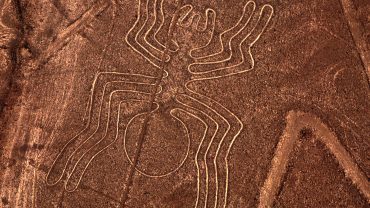Numbers have long held a captivating power over human imagination, forming the bedrock of science, maths, art, and philosophy. Yet beyond their role as quantifiable tools, numbers are said by some to possess a more enigmatic influence that has persisted for thousands of years. This is the mystical concept of numerology.
Numerology, explained as the practice of interpreting numbers as symbols, is said to be able to guide people through the complexities of life, offering insights into personal traits and behaviours, predicting future events, finding out if two people are romantically compatible, or even discovering if life has a higher spiritual truth or purpose.
In this article, we’ll explore the question of just what is numerology, as well as explaining what a Destiny Number is said to be. We’ll even take a time trip back thousands of years to ancient Babylon in an attempt to explain Chaldean numerology and its links to numerology today.
Keen to know more? You can count on us two uncover the one-ders of numerology. No pun in-ten-ded.
The Origins of Numerology

Bust of Pythagoras discovered at Aphrodisias (Credit: WorldWideImages via Getty Images)
It’s thought the first use of the word ‘numerology’ didn’t appear until the beginning of the twentieth century. Before that, it was usually known as ‘arithmancy’, a word Harry Potter fans will know well, as arithmancy was Hermione Granger’s favourite subject at Hogwarts.
The term “arithmancy” is derived from the ancient Greek words “arithmos,” meaning ‘number,’ and “manteia,” meaning ‘divination.’ It was likely first used in English around the 1570s, although its origins date back thousands of years earlier.
Gematria, a numerological system that assigns numerical values to letters, words and phrases, has been used for at least 2,000 years, and possibly longer. The Chaldeans of Mesopotamia are often cited as key contributors to the development of numerology, probably from around the ninth century BC, but it also developed in Babylon, Egypt, India, and China.
However, many of today’s Western numerology traditions are popularly linked to the legacy of the Greek philosopher Pythagoras, who lived in the sixth century BC, although the historical evidence for his involvement in such practices is limited.
Chaldean Numerology

An ancient map of Assyria Chaldea (Credit: mikroman6 via Getty Images)
There are lots of different types of numerology, explained in their own nuanced ways, and Chaldean numerology, named for the ancient Chaldeans, is often regarded in esoteric traditions as an early form of numerology. To some, it’s regarded as more accurate and precise than other methods.
The Chaldean civilisation, which existed between the tenth and sixth centuries BC in what today would be part of southeastern Iraq, were renowned for their astronomical and mathematical prowess and they developed a highly symbolic method of understanding the hidden forces behind names and words. They believed that every letter carried a specific vibration and that when these vibrations combined, they formed a unique energy pattern that could influence an individual’s personality, destiny, and life experiences.
The Chaldean system is quite intricate. While standard numerology generally maps letters straightforwardly from 1 to 9 in alphabetical order, Chaldean numerology used values based on sound frequencies and the vibrational quality of each letter, rarely using the number 9 in letter assignments due to its divine status in their culture. Instead, letters were grouped and aligned by the energies they represented, and some numerologists consider this system to be a more intuitive form of calculation.
Another key difference lies in interpretation. Chaldean numerology often placed a stronger emphasis on the name you were most frequently called by, rather than strictly your birth name, as it looked to measure the energetic imprint you carried in your day-to-day life. For example, if your given name is Catherine but you’re more commonly known as Kate, that’s the name you’d use for your calculations. Charles becomes Charlie, Daniel becomes Danny, and so on.
The Destiny Number

A numerologist looks for a Destiny Number (Credit: Anna Solovei via Getty Images)
One of the key concepts in numerology today is the Destiny Number. To find it, you take the full name you were given at birth (including any middle names), then convert each letter into a number using a standard numerology chart. Once you have these numbers, you add them together, and if the total is more than a single digit, you keep adding the digits until you end up with one number.
1 2 3 4 5 6 7 8 9
A B C D E F G H I
J K L M N O P Q R
S T U V W X Y Z
So, A, J, and S have a value of one, B, K and T have a value of two, and so on.
For the name Sophie Isabella Roberts, the numbers are as follows –
SOPHIE = 1 + 6 + 7 + 8 + 9 + 5 = 36 | 3 + 6 = 9
ISABELLA = 9 + 1 + 1 + 2 + 5 + 3 + 3 + 1 = 25 | 2 + 5 = 7
ROBERTS = 9 + 6 + 2 + 5 + 9 + 2 + 1 = 34 | 3 + 4 = 7
Lastly, you add up 9 + 7 + 7 = 23, and 2 + 3 = 5
The Destiny Number for Sophie Isabella Roberts is therefore 5.
What do Individual Numbers Represent?

What do the numbers mean? (Credit: NikkiZalewski via Getty Images)
In numerology, each number is often associated with specific personality traits, energies, or life influences. While interpretations can vary slightly, the general meanings are as follows:
1 | Leadership, independence, innovation, self-motivation, and ambition.
2 | Cooperation, diplomacy, sensitivity, harmony, and balance.
3 | Creativity, self-expression, social interaction, optimism, and charm.
4 | Practicality, stability, hard work, organisation, and responsibility.
5 | Freedom, adaptability, versatility, adventure, and curiosity.
6 | Nurturing, compassion, family focus, service, and harmony in relationships.
7 | Introspection, spirituality, analytical thinking, wisdom, and depth.
8 | Power, ambition, material success, financial management, and authority.
9 | Humanitarianism, generosity, compassion, global thinking, and spiritual awareness.
In our example, Sophie, according to this interpretation of the numbers, has a sense of freedom, is adaptable, versatile, adventurous, and curious. Those who wish to explore the concept of numerology will often use this process to understand their Destiny Number, and may use it to provide guidance as to their personal attributes.
The Final Countdown

The magical mystery of numerology (Credit: Nikolay Ponomarenko via Getty Images)
While its scientific validity remains the subject of debate, arithmancy, or numerology, has proven to be an enduring practice that continues to captivate people even today. Whether used for personal growth, decision-making, or self-reflection, those who seek to understand and adopt the ideas of numerology may well see it as a unique lens through which to view life’s complexities.












